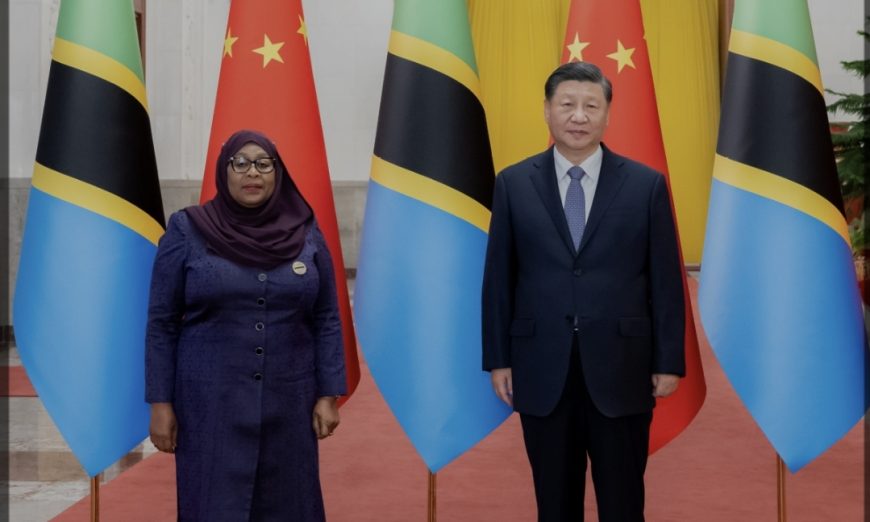IN recent years, China has solidified itself as Tanzania’s closest economic ally, pumping billions of dollars into infrastructure, energy, mining, and manufacturing. On the surface, this partnership seems mutually beneficial – Tanzania gets the development boost it desperately needs, and China gains a strategic foothold in East Africa. But as the dust settles around new roads, railways, and ports, a deeper, more uncomfortable question lingers: what is the political price of this friendship?
The Chinese footprint is everywhere – from the historic Tanzania-Zambia Railway (TAZARA) to the controversial, and currently shelved, Bagamoyo Port project. These projects symbolize more than just concrete and steel; they represent a slow but steady shift in Tanzania’s political posture, both at home and abroad.
Take international diplomacy. Tanzania’s support for China’s position during the Hong Kong protests was no coincidence. It signals a growing tendency to mirror Beijing’s world view – a shift away from independent foreign policy toward one that increasingly aligns with the interests of its largest creditor. Even more telling is the Julius Nyerere Leadership School, built with Chinese support to train ruling party elites across six African countries, including Tanzania. The curriculum? Modeled on the Chinese Communist Party’s political ideology.
This is not just soft power – it’s ideological seeding.
Domestically, the story gets more complicated. While Chinese loans and investments have delivered tangible benefits, they often come tied with opaque contracts, Chinese labor imports, and debt traps. President John Magufuli’s decision to halt the Bagamoyo Port project in 2016 – calling its terms tantamount to colonialism – was a rare act of defiance. His administration recognized that development should not come at the cost of national sovereignty. But even his pushback didn’t stop China’s deeper integration into the Tanzanian economy and governance infrastructure.
Meanwhile, in Dar es Salaam, “Chinese Help Centers” operate under the radar, providing consular services and monitoring Chinese citizens – reportedly with links to the CCP’s global surveillance network. Their quiet existence raises uncomfortable questions about the kind of influence China exercises not just economically, but politically and socially.
And what of the Tanzanian people? In many Chinese-run projects, local communities report exclusion from job opportunities and social interaction. Managerial enclaves where Chinese workers live in isolation deepen divisions and erode the promised “people-to-people” exchange. While elites toast diplomatic victories, ordinary Tanzanians often remain bystanders in their own development narrative.
Of course, the West is no saint in this arena. For decades, it dictated aid terms, pushed economic reforms with devastating social impacts, and largely ignored Tanzania’s strategic importance. China stepped in where the West hesitated, offering money with fewer political strings — at least on the surface.
But we must not confuse generosity with altruism.
China is playing a long game. Its investments are not just about helping Tanzania; they are about reshaping global power dynamics. And Tanzania – like many African nations – finds itself at a crossroads: embrace the development path charted by Beijing or demand a partnership that respects sovereignty, transparency, and long-term local empowerment.
Tanzania’s leadership must ask hard questions: Are we building for the future or mortgaging it? Are we sovereign partners or junior clients?
The time has come for Tanzania to recalibrate. Development is necessary, but not at the expense of political autonomy. We must welcome investment, yes — but on our own terms, with our eyes wide open.
Because every partnership, no matter how golden, comes with a cost. And when you dance with the dragon, you better know the steps – or risk getting burned.










